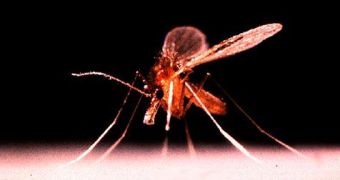Leishmaniasis is a disfiguring tropical disease, in which a trypanosome protozoa agent infecting the human body essentially eats away the flesh, causing severe wounds and, if left untreated, even death. For a long time, experts have wondered exactly how the microorganism thrives in the body without being challenged by the immune system, but thus far their inquires have turned up nothing. New studies have, however, revealed that the protozoa does not only fool immune cells, but also tricks them into coming to the pathogen's aid with nutrients.
Researchers show that this is done via synthesizing a specific gel, which forces the immune system cells that would otherwise consume the intruders to help them grow. Identifying the exact mechanisms behind this disease has been a long-standing goal in medicine, as more than 12 million people are affected by it to some extent every year. Its most common form of transmission is through sand fly bites, especially in Africa, where the condition is most widespread. The new finds could lead to the development of a breakthrough vaccine, to benefit all these people, the BBC News reports.
The parasites employ an extremely intelligent mechanism of fooling immune systems. When they infect a sand fly, they start producing a gel, which essentially clogs up the insect's digestive system. When an infected fly bites a human, the entire lump of gel, along with the parasites, is injected into the victim. Naturally, macrophage immune cells arrive on the scene immediately, ready to engulf and digest the intruders, and thus eliminate them.
However, in the case of Leishmaniasis, they have a nasty surprise waiting for them. The gel binds to them, and “persuades” them to engulf the parasites. But the macrophage cells do not digest them, as one would expect, but rather feed the pathogens, until they themselves are destroyed. “Our research shows that leishmania parasites are very cunning – they make their own gel to control the human immune system so they can establish a skin infection,” Imperial College London expert Dr. Matthew Rogers, the lead researcher of the new study, explains. The paper appears in the journal PLoS Pathogens.
“This study may well prove to be of significant benefit. It is known that vaccines raised against proteins from the saliva from the sand fly can give protection to infection. Thus it is very likely that this gel could be used [as] a target for the development of a novel vaccine. However, like all new findings, the benefits from this work are likely to be long term,” Medway School of Pharmacy microbiology expert Dr. Tim Paget adds.

 14 DAY TRIAL //
14 DAY TRIAL //